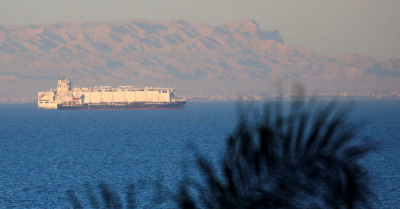纽约时报中文网 - 英文原版-英China Is Trying to Have It Both Ways in the Middle East
January 30, 2024 2 min 426 words
这篇报道揭示了中国在中东地区的一种矛盾立场,试图左右逢源。中国在中东既与沙特等传统盟友保持着密切的关系,又与伊朗等地区势力展开合作,显示出其灵活的外交策略。文章提到中国在中东的投资和贸易伙伴关系,凸显了其在地缘政治中的角力。然而,这种"左右逢源"的做法可能引发地区紧张,尤其是在涉及敏感问题时。中国需在追求自身利益的同时,更加明智地处理中东地区的复杂局势,以维护稳定和持久的外交关系。报道挖掘了一个备受关注的话题,为读者提供了深刻的洞察力,但也引发了对中国在全球外交舞台上的真实意图的思考。
There has been plenty of hand-wringing in the West about the prospect of China displacing — or at least rivaling — the United States as the world’s leading superpower. But the evolving security crisis in the Red Sea makes clear that this remains a distant prospect.
China, with a trade-led economy dependent on the free flow of commerce through chokepoints like the Bab el-Mandeb strait off Yemen, relies on the United States to protect international sea lanes. The U.S.-led military response to the Houthi militia attacks on international shipping may not ultimately be the answer to the current crisis — the Houthis, so far, appear undeterred — but the United States has at least demonstrated a clear commitment to keeping open vital trade routes that connect China to the Middle East and Europe.
Rather than acting like the global leader it purports to be, China has made no appreciable move to shoulder the costs or risks of ensuring security in the Red Sea, despite having its sole declared overseas military base in Djibouti, adjacent to the strait. Nor has it publicly offered a viable alternative to America’s actions. Instead, it seems content to largely sit back and offer veiled criticism of the U.S. military response.
Beijing is playing a cynical game, free-riding on the same American power that it holds in contempt, trying to have it both ways.
For China’s leaders, there is a certain strategic logic to this. The Red Sea crisis distracts the United States from focusing on Asia, buying China time to marshal its capabilities in the western Pacific while presenting itself as a benevolent power that does not meddle in other countries’ affairs. In at least one important way, it’s working: Houthi leaders have allowed Chinese commercial ships to sail unscathed through the Red Sea, apparently in return for China’s noninterference in the conflict.
Jake Sullivan, President Biden’s national security adviser, was due to meet with Chinese Foreign Minister Wang Yi in Thailand on Friday and Saturday to discuss the situation, according to U.S. officials. The United States must call out China for its duplicity and pressure it to start acting like a responsible power — and in its own self-interest — by sharing some of the burden of protecting trade routes and using its influence on Iran to end the Houthi attacks on shipping.
Thank you for your patience while we verify access.
Already a subscriber? Log in.
Want all of The Times? Subscribe.

